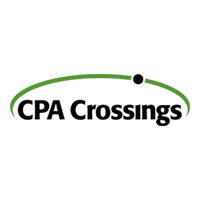
*** This subscription includes eight individual sessions for a total of 16 CPE. You receive significant savings when purchasing these webinars as a...
6/3/2024 6:00am - 10:00pm | Online | CPA Crossings
Members: $249.00, Non-members: $349.00
CPE Categories: Auditing (16 CPE)
*** This subscription includes eight individual sessions for a total of 16 CPE. You receive significant savings when purchasing these webinars as a subscription. Each of the eight courses runs live once a month beginning May 1, 2024 through April 30, 2025. Register for these scheduled courses as your schedule allows - at no extra cost to you. Once registered for this subscription, log in instructions will be emailed to you separately for each individual course. *** This subscription consists of a 16-hour audit skills curriculum for experienced staff, while it is also appropriate for anyone who has the need to better understand how to link risk assessments to the detailed audit plan. This series covers common risks, as well as analytical procedures, sampling, and proper reporting methods during an audit.
Presented by Emergent Solutions Group LLC
Appropriate for beginning or experienced staff auditors or any experienced professional who needs a reminder about fraud risk audit requirements.
After attending this subscription, you will be able to...
The major topics that will be covered in this course include:
Course 1: Audit 201: Fraud Risk - Minimum Audit Requirements
CPE: 2
Description: Fraud Risk - Minimum Audit Requirements will highlight the audit procedures most effective in identifying, assessing and responding to fraud risk. The financial statement auditor's overall responsibility is to obtain sufficient appropriate audit evidence to provide reasonable assurance as to whether the financial statements are materially misstated due to fraud or error. The difficulty is that there are inherent limitations related to detecting fraud due to deliberate schemes to conceal the intent to deceive, such as collusion.
Course 2: Audit 202: Applying Audit Risk to the Detailed Audit Plan
CPE: 2
Description: This course will emphasize the key concepts and best practices that drive a thoughtful risk-based approach to forming an opinion on the financial statements. Properly identifying, assessing, and responding to risk through a detailed audit plan is critical to an effective and efficient financial statement audit.
Course 3: Audit 203: Auditing Accounts Receivable - Common Risks
CPE: 2
Description: Auditing Accounts Receivable will explain tips and best practice techniques for auditing common accounts receivable risks, primarily focusing on existence and valuation. Accounts receivable tends to carry higher risk of material misstatement due to the complexity and subjectivity involved with initial recognition, subsequent measurement, and valuation. In addition, revenue recognition is presumed to be a significant fraud risk.
Course 4: Audit 204: Auditing Basic Inventory - Focus on Observations
CPE: 2
Description: Auditing Basic Inventory will primarily focus on performing the inventory observation, while introducing other risk concepts related to inventory. Assets classified as inventory varies widely with the nature of the entity and industry. Depending on the complexity of the inventory and the related pricing model, risk of material misstatement will vary widely as well.
Course 5: Audit 205: Auditing Liabilities and Long-Term Debt Risks
CPE: 2
Description: Auditing Liabilities and Long-Term Debt will discuss tips and techniques for auditing accounts payable, accrued expenses, and common long-term financing arrangements and related debt covenants. The completeness and proper classification of liabilities are the typical higher audit risks. The complexity of the debt financing arrangements may create a significant risk requiring more persuasive audit evidence.
Course 6: Audit 206: Analytical Procedures - Audit Fundamentals
CPE: 2
Description: Analytical Procedures - Audit Fundamentals will provide the tips and techniques necessary to gather sufficient appropriate audit evidence to support conclusions using analytic procedures common to financial statement audits. Properly designing, documenting and evaluating results of analytic review procedures is critical for performing an effective and efficient audit engagement.
Course 7: Audit 207: Sampling - Avoiding Common Mistakes on Audits
CPE: 2
Description: Sampling - Avoiding Common Mistakes on Audits will describe the proper process for both attribute testing and variable sampling in financial statement and compliance audits. Sampling is an important method for determining the extent of testing controls, testing compliance, and tests of substantive details. It allows the auditor to apply procedures to less than 100% of the population yet extend results to project likely conclusions about the entire population.
Course 8: Audit 208: Audit Reporting Basics - Report Issuance Process
CPE: 2
Description: Audit Reporting Fundamentals will provide tips and techniques necessary for issuing and reporting on high-quality financial statements prepared under any applicable financial reporting framework. The ultimate objective of a financial statement audit is to issue an auditor's report.
The first subscription in the series, "Audit Skills for Beginners" or basic auditing knowledge.
Consider taking the previous Audit Skills Subscription with CPA Crossings
© Copyright 2024 KSCPA | All Rights Reserved